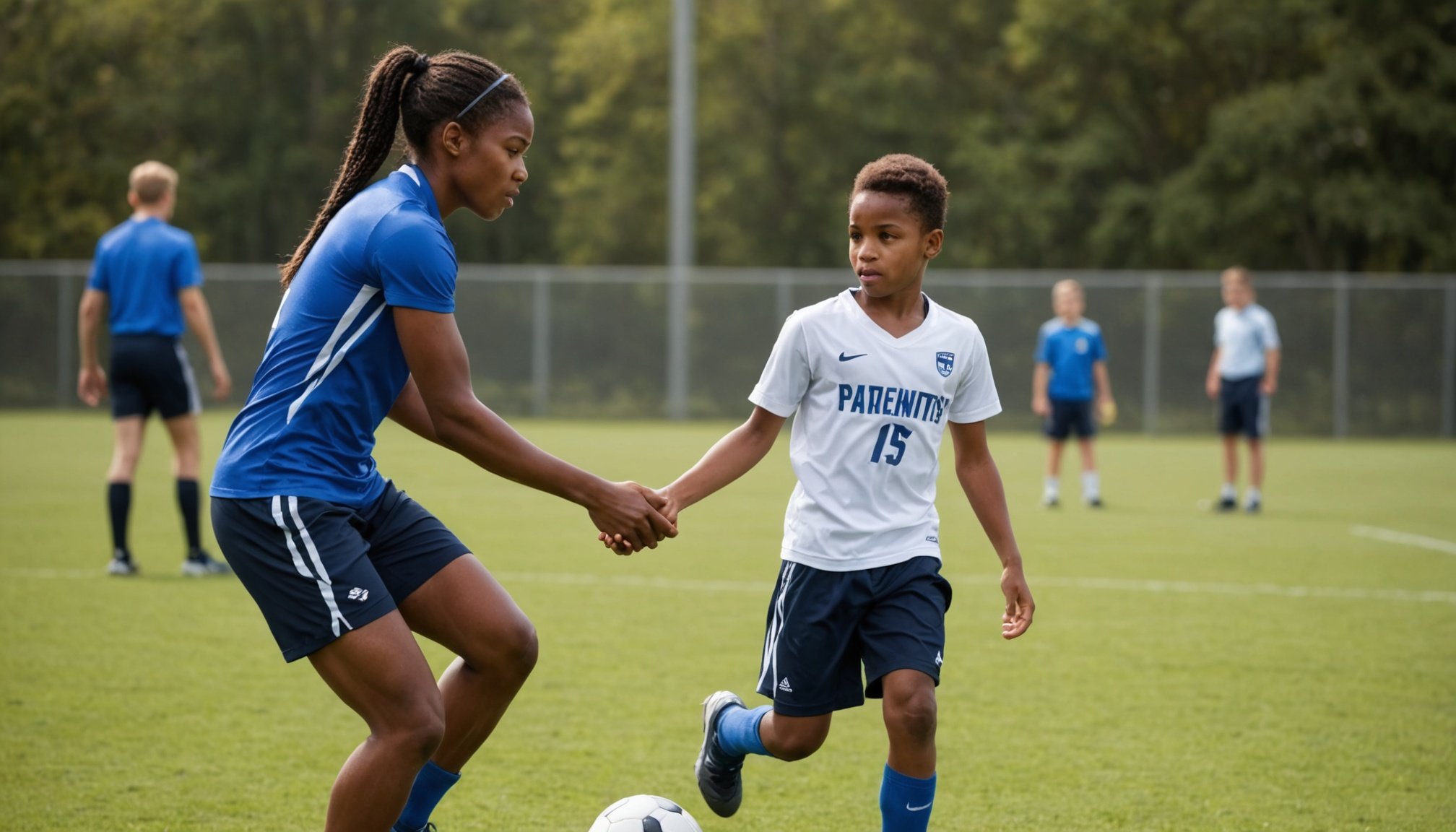The dynamic between parents and their children involved in sports is pivotal in shaping young athletes. As youth sports have gained traction, the role of parental involvement has come under scrutiny. While the love of sports is often a shared family experience, the impact of parental support can vary significantly. This article delves into how parents can positively influence their young athletes’ motivation and performance by exploring their roles as coaches, supporters, and motivators. Understanding this relationship not only benefits the athletes but also fosters a supportive environment that nurtures their growth.
Understanding the Role of Parents in Youth Sports
When it comes to youth sports, parents play a multifaceted role. They are not just bystanders but active participants in their children’s athletic journeys. From driving them to practice to cheering from the sidelines, parental involvement can significantly affect a child’s experience in sports.
Topic to read : Elevating equestrian excellence: strengthening the bond between athletes and their horses for unmatched performance
Many young athletes look up to their parents for guidance and support. Specifically, the way parents engage with their children can shape their approach to sports and their overall enjoyment. Support can take many forms, from attending games to providing emotional encouragement. When parents express enthusiasm for their child’s participation, it often translates into greater motivation for the young athlete.
Moreover, the relationship between parents and coaches is also crucial. A collaborative dynamic fosters a positive atmosphere, which can enhance the athlete’s performance. Coaches often appreciate parents who are involved but respectful of team dynamics. This balance creates a supportive community where children can thrive. Parental involvement in sports can also translate to better communication about goals and expectations, which is essential for young athletes.
In the same genre : Secure your gains: key injury prevention techniques for powerlifters
However, the involvement should not cross into pressure. It is essential for parents to maintain a balance, ensuring that their support does not become a source of stress. Understanding the fine line between encouragement and pressure is key for fostering a positive environment for young athletes.
Fostering Motivation Through Positive Reinforcement
Motivation in young athletes is often fueled by parents who encourage rather than criticize. This encouragement can come in various forms, such as celebrating personal bests or simply enjoying the game. Positive reinforcement is a powerful tool that can lead to enhanced performance and greater enjoyment in sports.
When parents praise their children for their efforts, regardless of the outcome, it instills a sense of accomplishment. This method fosters intrinsic motivation, where the child feels motivated to improve for their own satisfaction rather than external validation. In contrast, a focus on winning or a child’s performance may create anxiety, which can dampen their love for the game.
Additionally, parents can help set realistic goals for their children. By working together to establish achievable objectives, parents can guide young athletes in their progression. This collaborative goal-setting not only enhances the relationship but also teaches valuable life skills such as determination and resilience. When children see their parents investing time and effort into their goals, it serves as a motivational force, encouraging them to strive for success.
Communication is also a vital aspect of fostering motivation. Open dialogues about experiences in sports allow young athletes to express their feelings and thoughts. When parents listen, it shows that they value their child’s perspective, further boosting their confidence and motivation.
The Impact of Supportive Relationships on Performance
The relationship between a parent and a young athlete can significantly impact performance on and off the field. Supportive relationships create an environment where children feel safe to express themselves, take risks, and make mistakes—all crucial components of growth in any sporting endeavor.
Research has shown that children who perceive their parents as supportive tend to exhibit higher levels of motivation and commitment to their sport. This support often translates into better performance during competitions. When parents demonstrate faith in their child’s abilities, it reinforces the child’s self-belief, which is vital during challenging moments.
Moreover, parents who focus on the process rather than just the outcomes help their children appreciate the journey of sports. Athletes who understand that improvement and enjoyment are as important as winning tend to have longer, more fulfilling sporting careers. This mindset reduces the pressure to succeed and allows children to engage more deeply with their sport.
In addition, the emotional support from parents can be particularly influential during setbacks, like losing a game or not meeting personal goals. When parents encourage resilience by helping children cope with disappointment, it teaches valuable lessons about perseverance and hard work. Such experiences help shape not only better athletes but also more well-rounded individuals.
Navigating Challenges: Parental Pressures and Their Effects
While parental involvement is generally beneficial, it is essential to recognize that excessive pressure can have detrimental effects on young athletes. The desire for children to excel can sometimes lead to unrealistic expectations. This pressure can manifest in various ways, such as overemphasis on winning or a lack of focus on personal development.
When parents push too hard, it can lead to burnout and a decline in motivation. Young athletes may begin to associate sports with stress rather than enjoyment. This scenario often results in children withdrawing from the sport, which can diminish their sense of self-worth and joy in being active.
To navigate these challenges, parents must practice self-awareness and reflect on their own motivations. Understanding the difference between healthy support and unhealthy pressure is crucial. Parents should strive to promote a love for the game and a sense of personal achievement rather than a fixation on winning.
Additionally, managing expectations is vital. Having realistic discussions about goals and achievements helps children understand that failure is part of the learning process. Encouraging young athletes to focus on their own journey, rather than comparing themselves to others, fosters a healthier mindset towards sports and competition.
Ultimately, fostering a supportive relationship grounded in understanding and encouragement can mitigate potential pressures. Parents should aim to create an environment where children feel empowered to pursue their passions without fear of disappointing their parents.
In conclusion, the influence of parental support on young athletes is profound and multifaceted. Parents play a crucial role in shaping their children’s experiences in sports, impacting their motivation and performance. By fostering positive relationships, maintaining open communication, and navigating the fine line between support and pressure, parents can significantly enhance their children’s athletic journeys.
Understanding the importance of their involvement allows parents to create a nurturing environment where children can thrive. Ultimately, the goal should be to encourage a love for sports, promote personal growth, and instill lifelong values such as resilience, teamwork, and dedication. By recognizing and embracing their influential role, parents can help nurture not just better athletes but also well-rounded individuals prepared to face challenges both in and out of the sporting arena.











